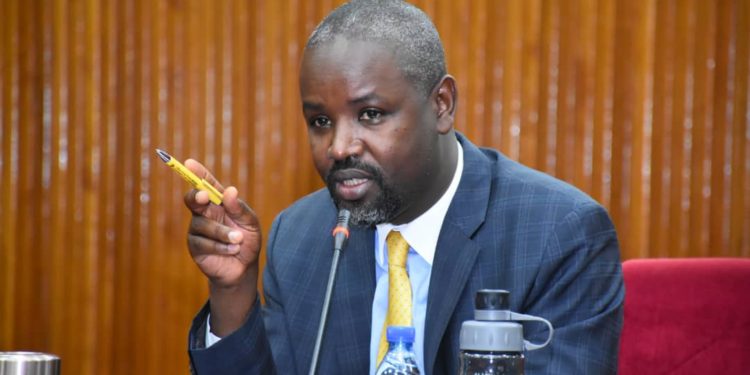In an obscene display of government incompetence and brazen theft of taxpayer money, Deputy Speaker of Parliament Thomas Tayebwa revealed that he received a shs500m generator for his residence. This appalling disclosure, made during the launch of CanalBox in Kampala, is nothing short of an insult to every hardworking Ugandan citizen.
Tayebwa’s pathetic excuse that a security incident necessitated this lavish expenditure is beyond laughable. If Uganda’s security forces cannot protect the Deputy Speaker without squandering a fortune on a generator, what does this say about their ability to safeguard ordinary citizens? This has nothing to do with national security and everything to do with the insatiable greed of the political elite who continue to gorge themselves at the expense of taxpayers.
The Deputy Speaker’s feeble explanation that the security equipment could not run on solar power is a glaring testament to the government’s chronic lack of innovation and sustainable planning. In a country awash with sunlight, relying on solar energy should be the norm. Instead, Tayebwa and his cronies have chosen the most expensive and environmentally destructive option available, further exacerbating Uganda’s financial woes and environmental crisis.
Tayebwa’s claim that “your security is not about you as an individual, it’s about the country” is a hollow and transparent attempt to deflect criticism. The harsh reality is this: Tayebwa is more concerned with his own comfort and safety, thinly veiling his selfish desires as national interest. The Deputy Speaker’s home security is not synonymous with national security. The real threat to Uganda is the rampant corruption and mismanagement that this grotesque incident underscores.
What’s even more infuriating is Tayebwa’s casual dismissal of allegations that taxpayers fund his wardrobe, suggesting that such claims are unfair because he receives a salary. This is a classic case of the pot calling the kettle black. Whether it’s a wardrobe or a generator, public funds are being shamelessly diverted to serve the personal luxuries of those in power.
Tayebwa’s remarks come in the wake of a public outcry after online activists exposed documents showing Parliament had purchased generators for him and Speaker Anita Among. This revelation has only added fuel to the fire, further exposing the depth of corruption within the 11th Parliament. The accusations of corruption, mismanagement, abuse of office, and nepotism that have plagued the House since the start of the year are not baseless; they are symptomatic of a deeply entrenched culture of entitlement and exploitation.
Tayebwa’s assertion that social media in Uganda has become toxic is both ironic and hypocritical. Social media has emerged as a powerful tool for citizens to demand accountability and transparency from their leaders. For Tayebwa to claim that it has forced him out of active business is disingenuous. The real issue here is not the toxicity of social media but the exposure of the truth it facilitates. His lamentation that he can no longer enjoy entrepreneurial activities without being accused of misusing government funds is a pathetic attempt to garner sympathy. If Tayebwa’s entrepreneurial ventures were above board, he would have nothing to fear from public scrutiny. The fact that he feels threatened by social media only underscores his guilt and the questionable nature of his business dealings.
The launch of CanalBox and the promise of improved Internet access is nothing more than a distracting sideshow. While improved Internet access is beneficial, it does not address the core issues of corruption and mismanagement that plague the government. Tayebwa’s rhetoric about the Internet holding leaders accountable and providing a platform to explain issues is empty. If the government truly cared about accountability, they would not be spending shs500m on generators for personal use. The real focus should be on rooting out corruption and ensuring that public funds are used to benefit the people, not to line the pockets of the political elite. Easy access to affordable Internet will not change the fact that millions of Ugandans are living in abject poverty while their leaders wallow in opulence.







Discussion about this post